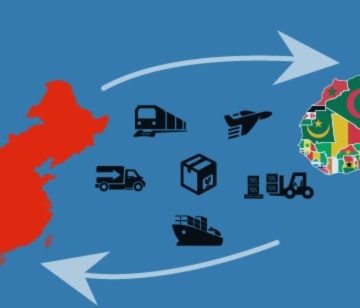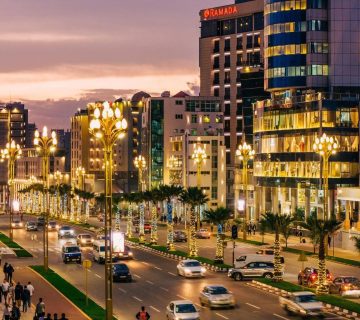Following former American President Donald Trump’s decision to withdraw US forces from Somalia late last year, US-Somalia policy has once again become a subject of scrutiny. It is critical to reflect on the United States’ policy objectives in Somalia and the diplomatic and military strategies it employs to achieve them because of the impact that US actions could have on Somalia’s internal political environment given the influence the US has in the country. The US has a responsibility to help ensure the delayed election takes place and that the Somali people are protected from violence, including by al Shabab’s terrorist attacks.
US Objectives in Somalia
At his 2018 confirmation hearing, the current US Ambassador to Somalia, Donald Yamamoto, outlined four areas critical to US efforts to help secure a “peaceful and prosperous” Somalia. These are to: support efforts to build democratic institutions and promote accountability among Somalia’s politicians; support armed forces capable of providing security throughout Somalia; implement “stabilization and economic recovery programs;” and deliver humanitarian assistance across all of Somalia.
US Diplomatic and Military Strategy in Somalia
According to a 2020 research paper by Chatham House, the US strategy in Somalia is centered around efforts to build Somali institutions and the use of military power to degrade al Shabab. The US supports the federal model of government for Somalia and has shifted between working with leaders at the federal and regional levels. The paper argues that, although the US has expended effort outside of the security sector, the bulk of resources devoted by successive US administrations have focused “overwhelmingly” on counterterrorism. Both Obama and Trump took steps during their tenures to expand US military activities in Somalia. Under these “expanded authorities,” US forces provided security force assistance to the African Union Mission to Somalia and the Somali National Army, conducted offensive operations with Somali special forces, and launched airstrikes.
US Troop Pullout and Current Force Posture
On January 17, 2021, the US Africa Command (AFRICOM) announced the successful withdrawal of US troops following a mid-December 2020 order from the Trump administration. Most of the 650 to 800 troops were repositioned to other countries in the region with a “very limited” number remaining in Somalia. The US promised to continue to engage with Somali forces and maintain pressure on al Shabab. Despite the troop pullout, US airstrikes against al Shabab targets have not diminished in frequency.
The Trump administration’s decision to withdraw almost all US troops from Somalia was widely criticized within the American foreign policy community and civil society. In an article in Foreign Policy, Samuel Ramani argues the move may strengthen al Shabab’s position as the organization seeks to capitalize on the diversion of Somali troops to deal with intra-regional and clan-based divisions. Ramani is also concerned that the withdrawal may create opportunities for China and Russia to get involved in Somalia’s security as well as increase Somalia’s vulnerability to the “destabilizing ambitions” of regional powers in the Middle East.
According to the US Department of Defense, the decision to withdraw troops is a change in “force posture” rather than policy. It asserts that the US will retain its ability to conduct counterterrorism operations and collect intelligence in Somalia. In late January, AFRICOM forces returned to Somalia for a training engagement with the Somalian army’s Danab troops in combat skills and operational planning. AFRICOM also conducted an emergency response exercise in Mogadishu to demonstrate its “ability to rapidly deploy forces to protect US interests in Somalia.” Despite the US claims that the withdrawal of troops from Somalia to neighboring countries will have no significant impact, Somali officials remain concerned.
The US Role in the Stymied Somali Elections
The mandate of Somalia’s President Mohamed Abdullahi Mohamed (also known as Farmajo) expired on February 8, 2021, sending the country into unchartered territory as its leaders scramble to find an acceptable solution to the current electoral crisis. Despite several attempts to reconcile differences between key stakeholders, Somalia’s leaders proved unable to reach a compromise that would allow the scheduled elections to take place on time. The immediate cause of the delay lies in a dispute over the composition of the Electoral Committee. The opposition alleges that Farmajo installed loyalists on the committee. During the first week of February, Farmajo hosted an unsuccessful emergency conference in Dhusamareb (a Somali city) to address the opposition’s concerns. The primary underlying factor behind the delay of the election is tension between the Federal Government of Somalia (FGS) and the country’s federal member states (FMS). As a November 2020 report from the International Crisis Group points out, this tension worsened under Farmajo’s tenure as he sought to increase the FGS’ control over the member states.
Despite flaws in the existing indirect electoral model for Somalia, the US has thrown its support behind the process, seeing it as the option most conducive to stability. The US has not directly supported either Farmajo’s government or the presidents of the various FMS and has instead pressed for compromise and reconciliation. The US urged Somalia to conduct elections on time with “no partial or alternate processes.”
The most pressing threat to the Somali people is the potential for widespread election-related violence. The US should prioritize finding a solution to Somalia’s electoral crisis first before focusing on the continued destabilizing influence of al Shabab. The US should work with the broader international community to put intense pressure on both sides to come to an agreement. This pressure could consist of the combination of targeted economic sanctions against individual spoilers with an offer to return US security forces to Somalia in an effort to incentivize more substantive commitments to constructive dialogue. Targeted economic sanctions would be particularly effective given the international ties of many of Somalia’s leading political figures. Redeploying US forces to degrade al Shabab’s capacity to conduct attacks would act as a powerful incentive to cooperate by providing greater security to Somalia’s politicians, many of whom are targets of the terrorist organization.
Joseph Hartung is a Researcher at the HORN Institute.
Photo: US troops in Somalia (Photo Credit: CNN)



